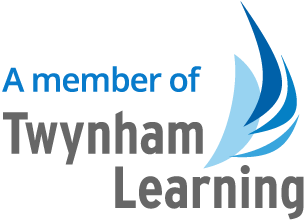History
The more you know about the past, the better prepared you are for the future.
- Theodore Roosevelt, President of the USA 1901-1909
Curriculum Information
Key Stage 3
Our students will learn how to interpret historical sources and ask questions about their reliability based on the provenance. They will also learn how to form opinions and arguments about the past, based on the growing body of knowledge that they acquire.
Year 7:
In Year 7, students embark on a fascinating journey through the early foundations of England and the wider medieval world. They begin by exploring how foreign tribes shaped the identity of England, before investigating the dramatic Norman Conquest and how a small invading force overcame a vast Saxon population. Pupils then turn their gaze eastward to medieval Baghdad, comparing its cultural richness with life in England, and examine the motivations behind European involvement in the Crusades.
The curriculum continues with an in-depth look at the transformative impact of the Black Death on peasant life, followed by an exploration of Henry VIII’s break from Rome and the seismic changes it brought to England. Students also consider the causes of the English Civil War, debating whether religion was the key factor behind the execution of the king. Finally, they delve into the fear and superstition of the seventeenth century by investigating the extent and nature of witch hunts.
Through engaging enquiry questions and rich historical sources, Year 7 students develop critical thinking skills and a deeper understanding of how the past has shaped the present.
Year 8:
In Year 8, students broaden their historical horizons by exploring global stories and diverse perspectives. They begin with the remarkable life of Mansa Musa, uncovering the wealth and influence of Medieval Mali, before tracing the rise and decline of the Mughal Empire in South Asia. Pupils then investigate why 1492 is seen as a pivotal moment in world history and reflect on how we should remember the Trans-Atlantic Slave Trade.
The curriculum continues with an exploration of the British Empire, examining the varied experiences of those who lived under its rule. Students then delve into the dramatic changes of industrial Britain, questioning whether it truly deserved its “satanic” reputation. They also explore Britain’s journey to democracy, considering why different narratives have emerged over time. Finally, students turn to the United States, evaluating the extent of progress in race relations between 1860 and 1918.
This rich and challenging curriculum encourages students to think critically about power, identity, and legacy, while developing the analytical skills needed to understand the complexities of our shared past.
Year 9:
In Year 9, students tackle some of the most complex and challenging events of modern history. They begin by examining the causes of the First World War, questioning the role of imperialism and exploring how warfare evolved during the conflict. The curriculum then turns to the Holocaust, where students engage with the human stories and historical context behind one of history’s darkest chapters.
Following this, pupils investigate the defeat of Nazi Germany and the ideological tensions that shaped the Cold War. They explore why the world became divided between competing superpowers and why the United States struggled to win the Vietnam War. These enquiries encourage students to think critically about conflict, ideology, and the human impact of global events.
Through thoughtful discussion and analysis, Year 9 students develop a deeper understanding of the twentieth century and the forces that continue to shape our world today.
Key Stage 4 Options Information
| Exam board: AQA | ||||||||
| Qualification: GCSE in History | ||||||||
| Specification: AQA B GCSE in History | ||||||||
|
Assessment: You will sit two examinations, details of which you can find below.
|
||||||||
|
Who is the course for? This course would suit students who have an interest in British, European and World History from Medieval times to the 20th century. History offers an interesting, stimulating varied and educationally rich course. In addition, it teaches important skills which are relevant to all careers. Since many of the issues studied in History do not have clear and easy explanations, while you are studying the topic you will have the opportunity to become more skilled at reasoning, deduction and at organising and evaluating information. |
||||||||
|
What will I do on the course? During the two year course you will study: |



